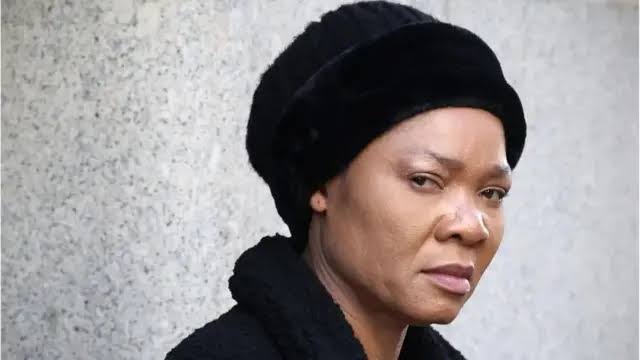From CHARLES ONYEKWERE
Beatrice Ekweremadu, wife of former Deputy Senate President, Ike Ekweremadu, has been released from a United Kingdom prison where she had been serving time for her involvement in an organ trafficking plot.
According to a close source, Mrs Ekweremadu arrived Abuja a few days ago.
This development marks a significant turn in a case that captured global attention due to its ethical and legal implications.
In 2022, Senator Ekweremadu, his wife and a doctor, Obinna Obeta, were charged under the UK’s Modern Slavery Act for conspiring to bring a 21-year-old Nigerian, David Nwamini, to London to exploit his kidney for their daughter who was in need of a transplant.
This case was notable as it was the first conviction of its kind under the 2015 legislation aimed at combating modern slavery, including organ harvesting for exploitation.
The Ekweremadus were found guilty after a trial that highlighted the dark underbelly of organ trade and the exploitation of vulnerable individuals.
The trio was convicted in March 2023 with Ike Ekweremadu receiving a sentence of nine years and eight months, his wife got four years and six months, while Dr Obeta was sentenced to 10 years.
The sentences were handed down following a detailed examination of the case by London’s Old Bailey Court, emphasising the gravity of the crime in both legal and moral terms.
Beatrice’s release came after serving part of her sentence, with posts on X (formerly Twitter) celebrating her return to Nigeria.
The sentiment on social media platforms has been mixed, with some expressing relief and support, while others continue to debate the ethical dimensions of the case.
This case has had a profound impact on discussions around organ donation ethics, international law and the exploitation of the less privileged.
It brought to light the desperate measures some might take to save a loved one’s life, juxtaposed against the severe legal repercussions when those measures cross ethical boundaries.
The UK court’s decision to prosecute under modern slavery laws underscored the international commitment to prevent the commodification of human organs.
The reaction in Nigeria has been varied. Some see the release as a moment of family reunion and perhaps a step towards healing, while others call for a broader reflection on how such cases are handled legally and ethically.
There is also speculations about what this could mean for Senator Ekweremadu’s own situation, with some expressing hope for his early release or retrial.
Mrs Ekweremadu’s release is a chapter in a story that has highlighted significant issues of human rights, legal accountability and the ethics of organ donation.
As she returns to Nigeria, the case continues to resonate, prompting discussions on how to prevent future occurrences of organ trafficking, while addressing the desperate needs that lead to such extremes.





